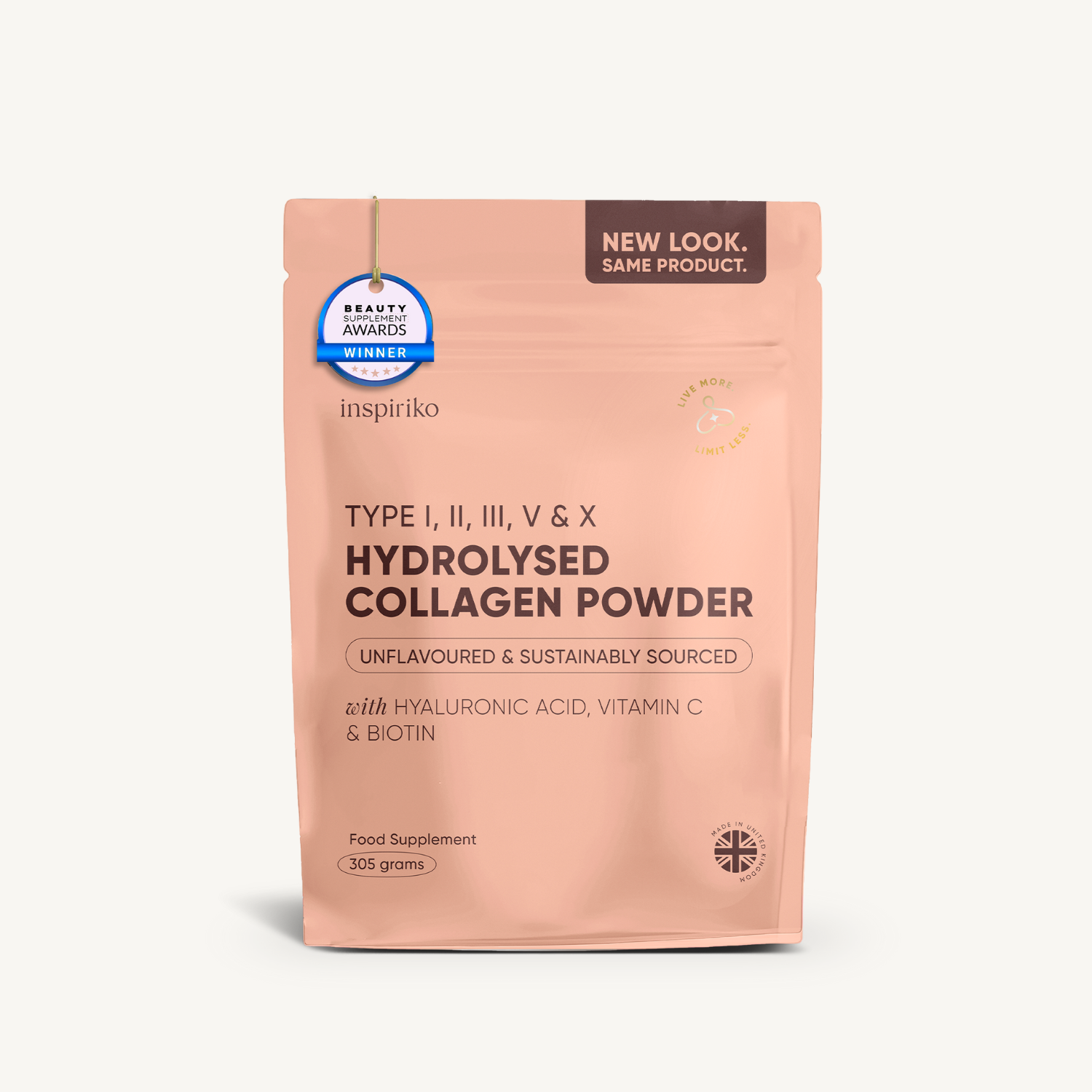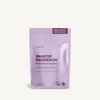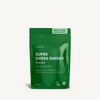As women enter their 40s, it’s not uncommon to experience noticeable changes in mood, energy levels, and overall well-being. These shifts are often linked to hormonal changes that occur during perimenopause and menopause. Hormones like oestrogen and progesterone naturally decline, which can lead to symptoms such as hot flushes, sleep disturbances, mood swings, and unexpected weight gain. Balancing hormones becomes essential not only for comfort but also for maintaining long-term health and vitality.
At Inspiriko, we understand that keeping your hormones in check can feel overwhelming, especially with so much conflicting advice out there. That’s why we’re committed to offering natural, science-backed solutions specifically designed for women over 40. From targeted supplements to holistic lifestyle tips, we’ll guide you through the best ways to support hormonal balance so you can continue to thrive, no matter your age. In this blog, we’ll explore practical strategies to help your body feel its best—inside and out.

What is a Hormonal Imbalance?
Hormones are the body’s chemical messengers, playing crucial roles in regulating mood, metabolism, reproductive health, and more. Produced by endocrine glands—such as the thyroid, adrenals, pancreas, and ovaries—hormones travel through the bloodstream to organs and tissues, directing various physiological processes. When these hormones are in balance, the body functions optimally. However, even slight imbalances can disrupt normal functions and lead to a range of symptoms.
A hormonal imbalance occurs when there is too much or too little of a hormone circulating in the bloodstream (1). Because hormones work in harmony, a fluctuation in one can affect the entire system. While hormonal shifts are natural during certain life stages—like puberty, pregnancy, perimenopause, and menopause—persistent imbalances can signal underlying health issues or lifestyle factors.
Common Types of Hormonal Imbalances in Women
|
Hormone |
Type of Imbalance |
Causes |
Symptoms |
|
Oestrogen |
High |
Perimenopause, obesity, PCOS, HRT, endocrine disruptors |
Weight gain (hips/thighs), heavy periods, breast tenderness, mood swings, bloating |
|
Low |
Menopause, ovarian dysfunction, lifestyle factors |
Hot flushes, vaginal dryness, low libido, dry skin, bone density loss |
|
|
Progesterone |
Low |
Chronic stress, ovarian dysfunction, menopause, contraceptives |
Irregular cycles, mood changes, insomnia, headaches, fertility issues |
|
Thyroid Hormones |
Hypothyroidism |
Hashimoto’s, iodine deficiency, stress, medication |
Fatigue, weight gain, cold intolerance, hair thinning, constipation |
|
Hyperthyroidism |
Graves' disease, thyroid nodules, excess iodine |
Rapid heartbeat, weight loss, anxiety, heat intolerance, tremors |
|
|
Insulin |
Insulin Resistance |
High-sugar diet, obesity, sedentary lifestyle, PCOS |
Sugar cravings, weight gain (abdomen), fatigue after eating, dark skin patches |
|
Cortisol |
High (Cushing’s Syndrome) |
Chronic stress, adrenal overactivity, steroid use |
Weight gain (abdomen/face), mood swings, hypertension, sleep issues |
|
Low (Addison’s Disease) |
Autoimmune issues, infections, steroid withdrawal |
Fatigue, weight loss, salt cravings, low blood pressure, hyperpigmentation |
|
|
Androgens |
High |
PCOS, adrenal disorders, anabolic steroids |
Facial hair (hirsutism), acne, scalp hair thinning, irregular periods, weight gain |
|
Low |
Ageing, adrenal insufficiency |
Reduced libido, muscle weakness, fatigue, mood changes |
Nutritional Strategies for Hormonal Balance
When it comes to balancing hormones naturally, diet plays a fundamental role. The right foods can support hormone production, reduce inflammation, and stabilise blood sugar levels—key factors in maintaining hormonal harmony. As we age, our bodies may become more sensitive to dietary choices, making it even more crucial to prioritise nutrient-dense, whole foods.
Inspiriko Tip: Start Your Day with a Hormone-Friendly Smoothie
Blend a nourishing smoothie with flaxseeds, leafy greens, berries, plant-based protein powder, and almond milk to support hormone metabolism, energy levels, and gut health - all in one go.
For an added boost, mix in 1 teaspoon of Love Thy Gut - our gentle gut-supporting blend. It mixes easily into juices, smoothies, fruit bowls, yoghurt, or even plain water. Just stir well and sip your way to better digestion and balanced hormones!
Focus on Healthy Fats
Fats are essential for hormone production, as hormones like oestrogen, progesterone, and testosterone are derived from cholesterol. Incorporating healthy fats into your diet—like those found in avocados, nuts, seeds, and oily fish—can help support hormone synthesis.
Omega-3 fatty acids, in particular, have been shown to reduce inflammation and support overall hormonal balance (2). Foods like flaxseeds, chia seeds, and salmon are excellent choices. Additionally, extra virgin olive oil and coconut oil are beneficial for maintaining cell membrane health, which is vital for optimal hormone receptor function.

Prioritise High-Fibre Foods
Dietary fibre is crucial for maintaining balanced hormones, especially oestrogen. Fibre helps bind excess oestrogen in the digestive tract and aids in its elimination from the body, reducing the risk of oestrogen dominance.
-
Whole grains, legumes, vegetables, and fruits are rich in fibre and provide essential vitamins and minerals to support metabolic health.
-
Cruciferous vegetables like broccoli, kale, and Brussels sprouts contain compounds that promote healthy oestrogen metabolism (3), making them especially valuable during perimenopause and menopause.
Include Protein with Every Meal
Protein is vital for maintaining muscle mass, supporting metabolism, and regulating appetite—all of which are essential for hormonal health. Lean protein sources like chicken, turkey, tofu, and legumes not only provide amino acids but also help stabilise blood sugar levels (4).
Blood sugar imbalances can lead to insulin resistance, which in turn affects other hormones, including cortisol and oestrogen. Incorporating protein into each meal helps prevent energy crashes and reduces cravings for sugary snacks, which can negatively impact hormonal balance.
Cut Back on Sugar and Processed Foods
High sugar intake can spike insulin levels, leading to insulin resistance over time. This not only affects metabolism but also increases the risk of hormonal disruptions, including PCOS and thyroid imbalances.
Processed foods, rich in refined carbohydrates and unhealthy fats, can exacerbate inflammation (5) and disrupt endocrine function. To support hormone health, reduce your consumption of sugary snacks, sodas, and processed meals. Instead, opt for whole, minimally processed foods that nourish your body and support stable blood glucose levels.

Lifestyle Adjustments to Support Hormonal Health
Balancing hormones naturally requires more than just dietary changes; it also involves making thoughtful lifestyle adjustments. Incorporating healthy habits into your daily routine can significantly impact hormone regulation, stress management, and overall well-being.
Wondering if your symptoms might be linked to a hormonal imbalance?
Take our 2-Minute Hormone Health Quiz
Discover what your body might be trying to tell you and get personalized recommendations to help you feel your best.
Regular Exercise
Staying physically active is one of the most effective ways to support hormonal health. Exercise, particularly strength training and aerobic activities, helps boost metabolism, maintain muscle mass, and regulate hormones like insulin and cortisol.
Strength training is especially beneficial as it stimulates muscle growth, which can mitigate the decline in muscle mass commonly seen during menopause. Meanwhile, aerobic exercises—like brisk walking, cycling, or swimming—promote cardiovascular health and help reduce cortisol levels. Aim for at least 150 minutes of moderate activity per week, combining both strength and cardio workouts for optimal results.

Stress Management
Chronic stress is one of the most significant disruptors of hormonal balance. Elevated cortisol levels, triggered by prolonged stress, can interfere with sleep, lower progesterone levels, and even affect thyroid function. Incorporating stress-relieving practices such as yoga, meditation, and deep breathing exercises can help lower cortisol and improve mental well-being.
Studies suggest that regular mindfulness practices not only decrease stress but also support the body’s natural ability to regulate hormones (6). Even short, daily sessions of meditation or simple breathing exercises can make a noticeable difference.
Prioritise Sleep
Quality sleep is a cornerstone of hormonal health. The body repairs and regulates itself during sleep, producing hormones like melatonin and balancing others, including cortisol and growth hormone:
-
Aim for 7 to 9 hours of uninterrupted sleep per night to help the body reset and optimise hormone production.
-
Establishing a relaxing bedtime routine, such as dimming the lights and avoiding screens before bed, can enhance sleep quality.
-
Additionally, maintaining a consistent sleep schedule helps regulate your body’s internal clock, promoting better hormonal balance.
Avoid Endocrine Disruptors
Everyday exposure to synthetic chemicals can significantly impact hormonal health. Endocrine disruptors—like BPA, phthalates, and parabens—mimic or interfere with the body’s natural hormones. These substances are commonly found in plastics, personal care products, and even some household cleaners.
To minimise exposure, choose glass or stainless steel containers instead of plastic, and opt for natural, fragrance-free personal care products. Reading labels and being mindful of ingredients is key to reducing the impact of these environmental toxins on your endocrine system.

Herbal Remedies and Supplements
In addition to lifestyle adjustments, natural supplements can provide targeted support for hormonal balance. Herbs known for their adaptogenic properties and phytoestrogen content are particularly beneficial during perimenopause and menopause.
Adaptogenic Herbs
Adaptogens like Ashwagandha and Rhodiola Rosea have been used for centuries to help the body adapt to stress and maintain hormonal equilibrium:
-
Ashwagandha supports adrenal function, helping to lower cortisol levels and reduce anxiety (7).
-
Rhodiola helps boost energy and combat fatigue.
Regular use of these herbs can help maintain balanced cortisol, reducing the negative impact of chronic stress on your hormones.
Phytoestrogens
Phytoestrogens are plant compounds that mimic oestrogen in the body, helping to alleviate symptoms of hormonal decline. Soy isoflavones and flaxseeds are two excellent sources:
-
Soy has been shown to reduce the frequency and severity of hot flushes.
-
Flaxseeds can support estrogen metabolism, helping maintain balance during menopause.
Including these foods or taking supplements with phytoestrogens can help manage symptoms like mood swings, hot flushes, and vaginal dryness.
Inspiriko’s Recommendations
At Inspiriko, we believe that holistic wellness starts with quality ingredients rooted in traditional herbal medicine and backed by modern science. Our hormone-supporting supplements are crafted with women over 40 in mind.
For example, our Perimenopause & Menopause Support supplement contains clinically researched ingredients like Ashwagandha KSM-66 and Peruvian Maca extract, known for their ability to balance hormones and reduce menopausal symptoms. These formulations are designed to help you stay energised, focused, and resilient during hormonal transitions. By combining the right lifestyle choices with natural, targeted supplements, you can take proactive steps to support your hormonal health and continue thriving, no matter your age.
FAQs
How can I tell if my hormones are out of balance?
Are there specific foods that can help balance my hormones?
Can supplements really make a difference?
How long does it take to see improvements?
Should I consult a healthcare provider before starting new supplements?
References for the blog
-
Cleveland Clinic, 2025. Hormonal Imbalance. [online] Available at:
https://my.clevelandclinic.org/health/diseases/22673-hormonal-imbalance [Accessed 14 May 2025]. -
Calder, P.C., 2010. Omega-3 fatty acids and inflammatory processes. Nutrients, 2(3), pp.355-374. doi: 10.3390/nu2030355.
-
Higdon, J.V., Delage, B., Williams, D.E., Dashwood, R.H., 2007. Cruciferous vegetables and human cancer risk: epidemiologic evidence and mechanistic basis. Pharmacological Research, 55(3), pp.224-236. doi: 10.1016/j.phrs.2007.01.009.
-
Sluijs, I., Beulens, J.W.J., van der A, D.L., Spijkerman, A.M.W., Grobbee, D.E., van der Schouw, Y.T., 2010. Dietary Intake of Total, Animal, and Vegetable Protein and Risk of Type 2 Diabetes in the European Prospective Investigation into Cancer and Nutrition (EPIC)-NL Study. Diabetes Care, 33(1), pp.43-48. doi: 10.2337/dc09-1321.
-
Sawalha, K., Tripathi, V., Alkhatib, D., Alalawi, L., Mahmood, A., Alexander, T., 2023. Our Hidden Enemy: Ultra-Processed Foods, Inflammation, and the Battle for Heart Health. Cureus, 15(10), p.e47484. doi: 10.7759/cureus.47484.
-
Turakitwanakan, W., Mekseepralard, C., Busarakumtragul, P., 2013. Effects of mindfulness meditation on serum cortisol of medical students. Journal of the Medical Association of Thailand, 96(Suppl 1), pp.S90-95.
-
Wiciński, M., Fajkiel-Madajczyk, A., Kurant, Z., Kurant, D., Gryczka, K., Falkowski, M., Wiśniewska, M., Słupski, M., Ohla, J., Zabrzyński, J., 2023. Can Ashwagandha Benefit the Endocrine System?-A Review. International Journal of Molecular Sciences, 24(22), p.16513. doi: 10.3390/ijms242216513.








